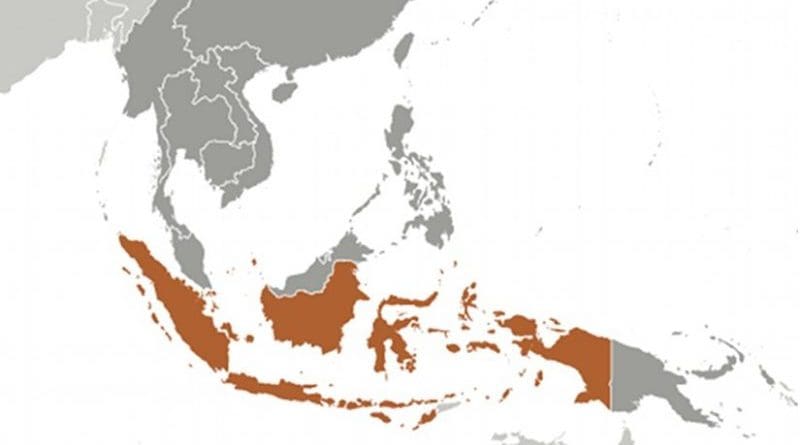The Cultural Logic Of Jakarta’s Riotous Protest – OpEd
This week Jakarta saw a clash between the Islamic fundamentalists and the government in a protest seeking the removal of the governor, a Chinese Catholic.
It is important to look at the cultural logic of the protest as it exists within the context of regional and global politics. The protest is against an Indonesian-born Chinese governor said to have uttered blasphemy re: the falsehood of Surah Al Maidah, said to be used against him to legitimize the ouster. The governor has clarified that he was wrongly quoted and that clarification was also supported by the country’s head of religious affairs. Still, the radical Islamists did not want to accept the explanation. The sentiment is, and perhaps has always been this: non-Muslims should not be allowed to govern Muslims. This is a similar stand in Malaysia, taken by the Malaysian Islamic party (PAS/Partai Islam SeMalaya) and perhaps the sentiment of those in other majority-Muslim countries. Here is the cultural logic, framed as a global issue:
How does this logic translate into the complexity of Islamism in Southeast Asia?
The continuing rise of Islamic Fundamentalism ala ISIS in Southeast Asia? This is what the region will be seeing as a complex and continuing interplay of ideologies. Indonesia will be growing as an area of political-contestation calling for an Islamic State, perhaps making alliances with similar forces in Malaysia (PAS), radical Islam in Mindanao, and Southern Thailand.
How will Australia react being seen as pro-America and anti-Muslim?
How will Singapore brace itself — being predominantly Chinese and viewed as pro-Israel?
How will Malaysia play the game of globalization and its consequences, given Prime Minister Najib’s new alliance with Communist China — a world power that has always been out to crush Islamic fundamentalism?
The Islamists want the Catholic Chinese “Ahok” out. It is an age-old racial clash between the “non-syncretist” Indonesian/Javanese-Muslims and the Christian Chinese. It is a similar situation in Malaysia; one that lead to the bloody racial riots on May 13, 1969 that led to the crafting of political-economic policies consolidation the power of the Malay-Muslims. How will this scenario, sign, symbol, significance of the Jakarta protest play in race-religious relations in Malaysia given the emerging interest of the Najib regime in making Malaysia wide open to Communist Chinese.
This is might be century of the “Asian Pivot’ as President Obama might say of the importance of the regions of East Asia and Southeast Asia — of the Spratly Islands and the need for American bases there to make the world “safe for American democracy”. But there is a sense of a vacuum developing, Of the USA losing its appeal and later military and of course now economic influence to China. Yes, China, not only is rising but hegemonizing and flooding the region with cheap goods the world doesn’t need. But a filling in of a power — political-economic and gradually military — nonetheless. These are developments that might contribute the failure of the America global-economic-corporate driven agenda called The Trans-Pacific Partnership Agreement – that “NAFTA on Steroids Grand Obama Plan – whose objective is to stop China from economically controlling the region, and the world as well.
That’s the political-economic and strategic aspect of the context of the rise of counter-hegemonic forces: the playing with anti-authority of the American hegemony. The Jakarta riot and the fire that came with it is another indicator of major global challenge in the region: counter-hegemony of Westernism inspired by the growth of an American creation called ISIS. That Frankenstein of the post-modern realpolitikal world-gangland-warfare moving from one theatre to another: From Middle East to Asia and into the Southeast Asian region of the Malay world called aesthetically, the Nusantara.
There will be a contest though: the rushing in of a more powerful force ala’ Islamic State (wherever the ‘seat of global government’ is.) Indonesia has the largest population of Muslims in the world. Next, China. Muslim, though vary in the degree of “piousness” and political identity, share a similar view” the Ummah is larger than the nationality, and the Islamic State is larger than the nation state, and most importantly Islamic Law is more supreme than the state Constitution. Death for Islam is better than being alive for Secularism, The Afterlife is better than this World.
The Muslim population in Southeast Asia is now 250 million. Think of how radicalization will impact regional politics. In a few decades, when dynamics continue to shift, and when Islamism will spread like wildfire, albeit certain issues are of national-character, and when the elusive yet globalizing ISIS fight using newer strategies targeting Southeast Asia, what will happen? With China and Russia — twin Marxist-Maoist-Leninist global millenaristic-suparnationalistic movements-albeit atheistic — step into the Islamically radicalized Southeast Asia-Nusantara region to stop the rise of Islam? Will Russia do a Chechnya? Will China do a Uighur” Will both, China and Russia do a Syria on the Islamic State in Asia? Will the new USA perhaps under a hawkish Hillary do a World War III?
Complex. Perplexing. The Butterfly Effect is here again. Keep looking at flapping wings and the ripples produced. Like motifs on a Persian carpet and like the nature of god, there is no beginning there is no end to the tsunami created by that lone butterfly.
What do you political analysts out there think?

